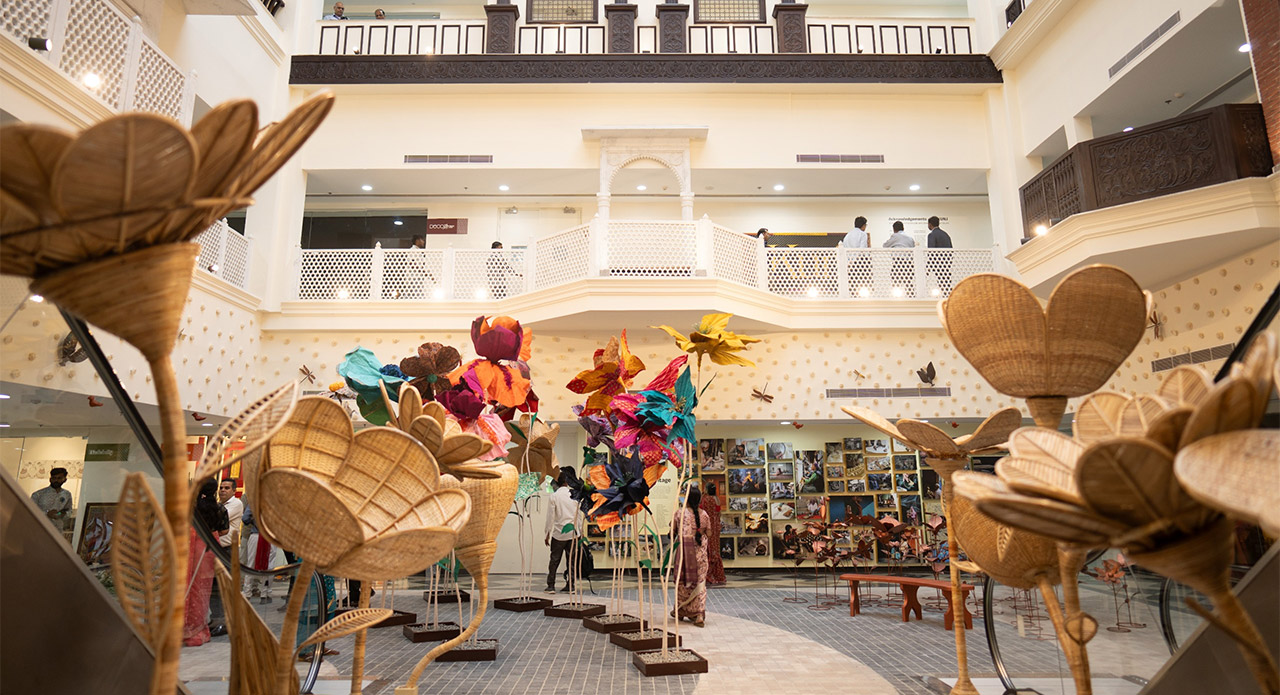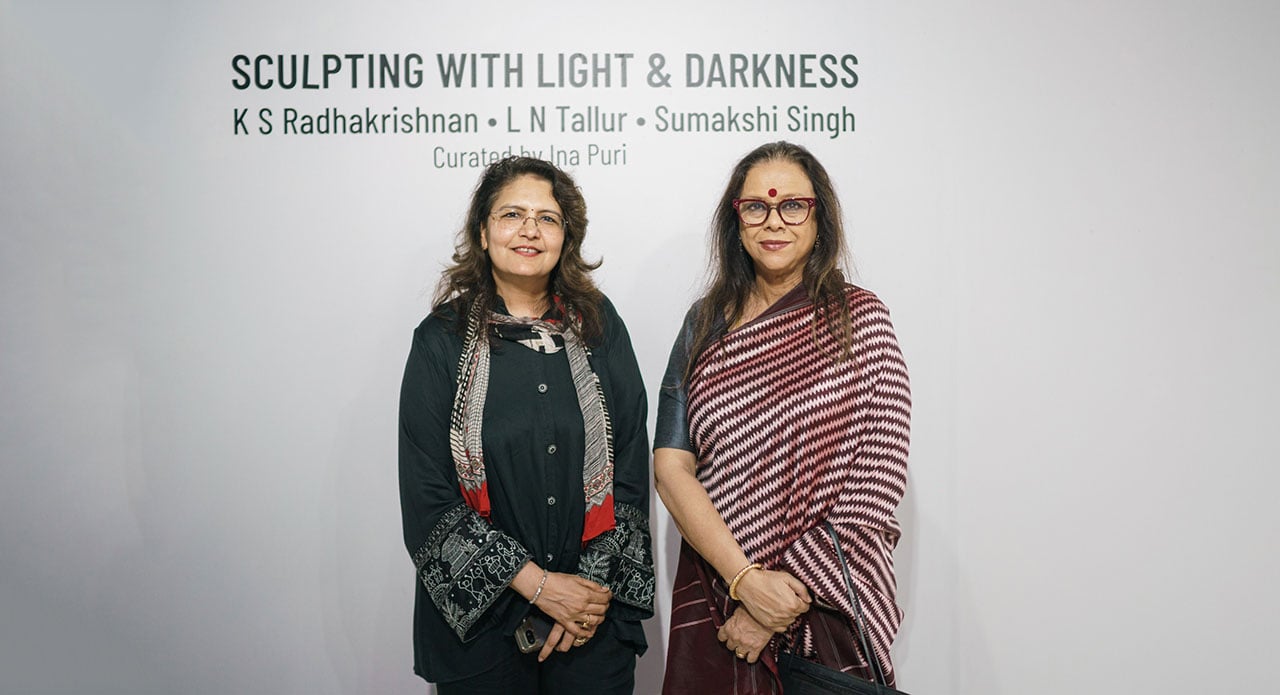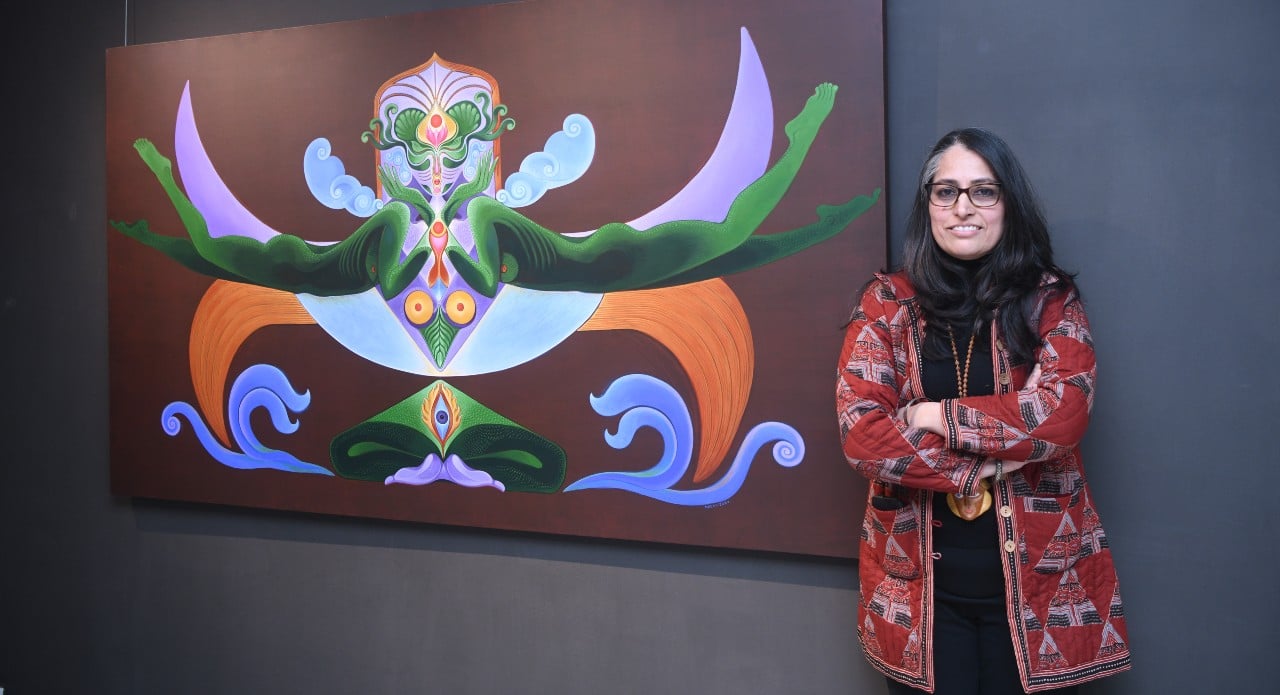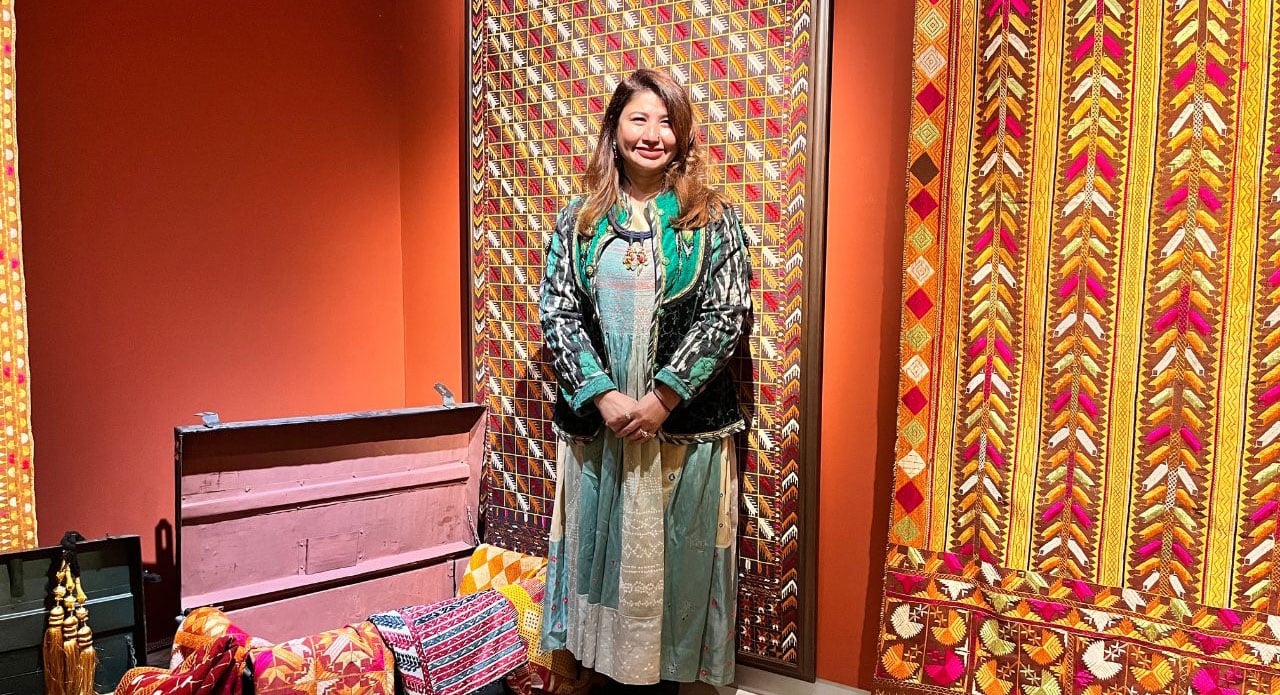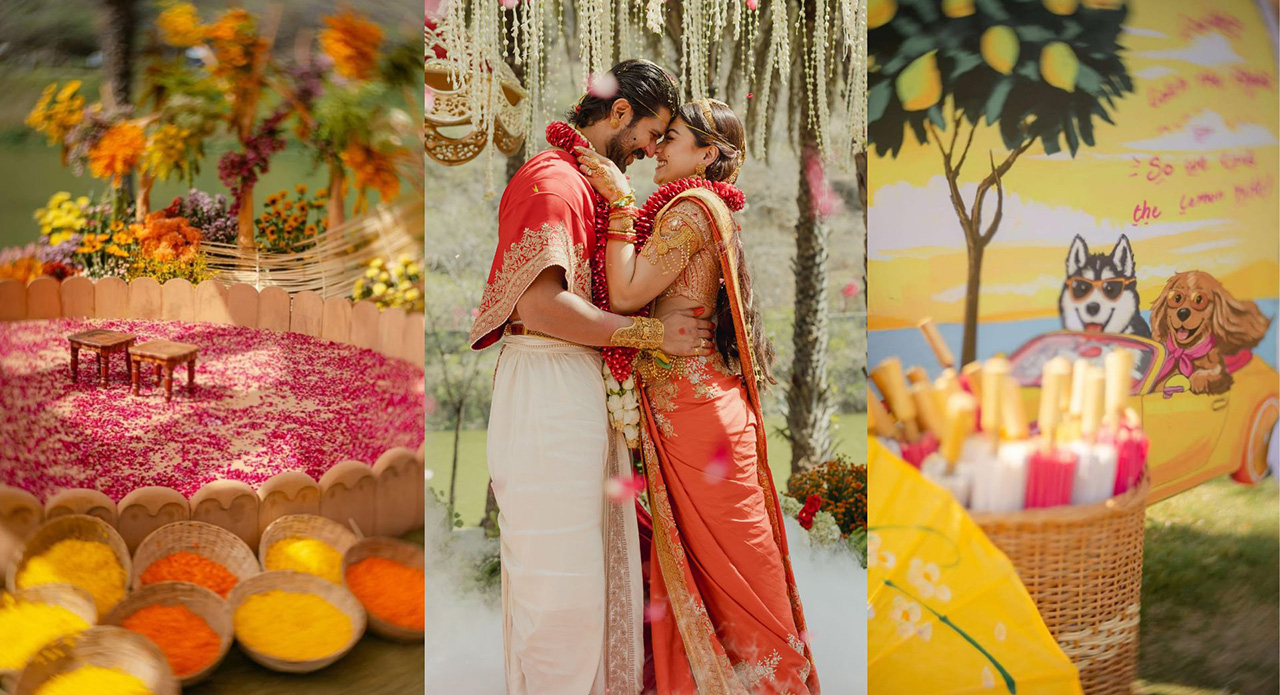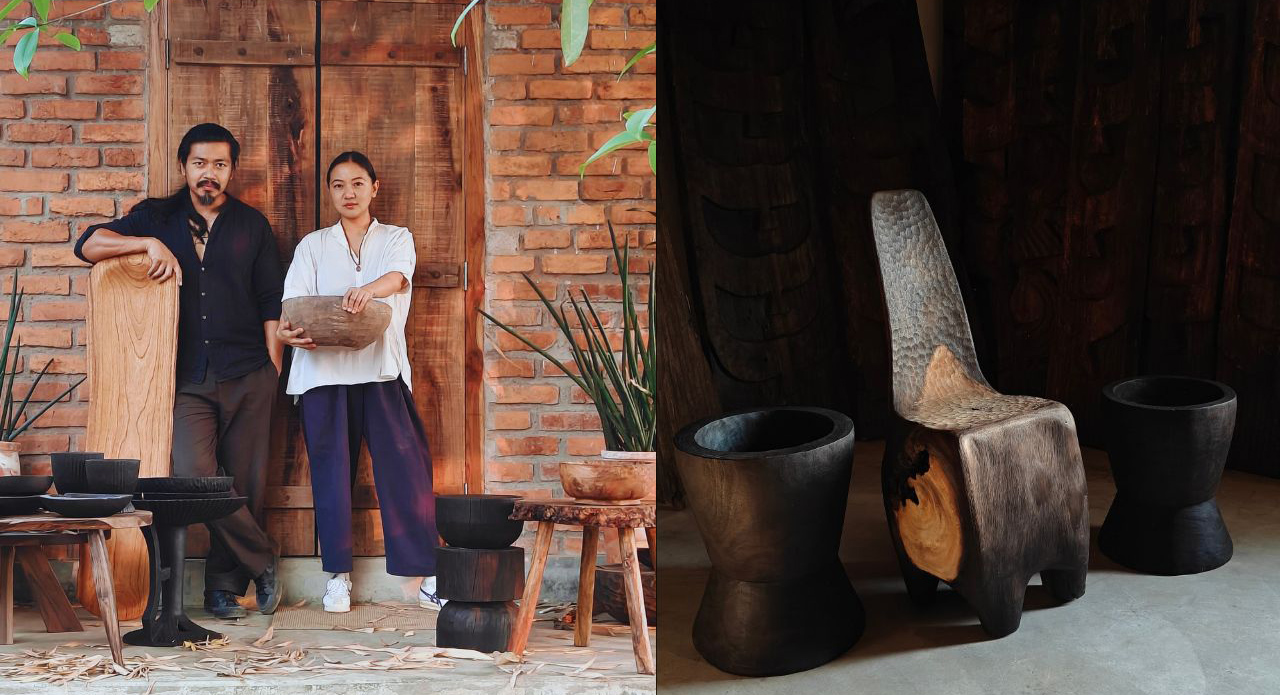In matters of heart and mind, we often forget that it is the hands that bridge thought and creative expression. They weave and spin, write and paint, sculpt and choreograph giving tangible shape to the beauty of imagination. At The Kunj in Delhi, touted as India’s first luxury handicrafts mall, it’s these hands and their artistry that takes the centrestage. On a cloudy day, Outlook Luxe takes a tour of the craft complex, an initiative by Ministry of Textiles, located in the iconic retail hub of the capital, Vasant Kunj. Here, for the first time, Indian handicrafts and handlooms share space at stone’s throw away from international luxury brands like Versace, Lladro, Cartier, Bvlgari and others housed at DLF Emporio. The juxtaposition is moving — echoing that choosing Indian handmade is to opt for slowness, intention and soul in a market flooded with ultra luxe brands and excess mass products.
At The Kunj, we found the exquisite Pashminas from Kashmir, heritage weaves from South India, and vibrant Kutchhi embroidered apparel, to artisanal table-top games plated with gold and silver — rooted in luxury conscious consumption, craft, culture, community and heritage.
View this post on Instagram
Indian masterpieces on display
Our first stop was at Karigar Sangam, a gallery space featuring over 100 masterpieces by National Awardees, Shilpa Gurus, and master artisans. Among them, a regal ‘Pitara’ crafted with teak-wood from Gujarat captivates us with Sadeli craft and micro mosaic marquetry work rivalling the most ornate Persian trinket boxes. For those who love heritage jewels, ‘The Seep Mahal Haar’ from Jaipur crafted from pearls, pure silver, zarkan and adorned with Meenakari took us back to the grandeur of Mughal and Rajputana era. Another striking masterpiece was the age-old doorway ‘The Painted Portal’. It spotlightes Pattachitra craft from Odisha and West Bengal with bright jewel colours depicting scenes from Krishna Leela, Ramayana, and Mahabharata, poised as a portal between past and present.
Moving further invites us to the charms of boardgaming in princely India. At artisanal board game brand Khol Khel, a display of massive bejewelled chess sets worth several lakhs catches everyone’s attention. Made from Rajasthan’s camel bone, sandalwood stone, and silver, each piece glorifies the splendour of Mughal miniature art. “For me, luxury is best understood through the lens of patronage,” says Aman Gopal Sureka, Founder & CEO, Khol Khel showing us the artisanal pieces that were once patronised by rulers from Rajasthan. “It’s a rare collectable artefact because unless you have the reference, you can’t recreate it,” he adds.
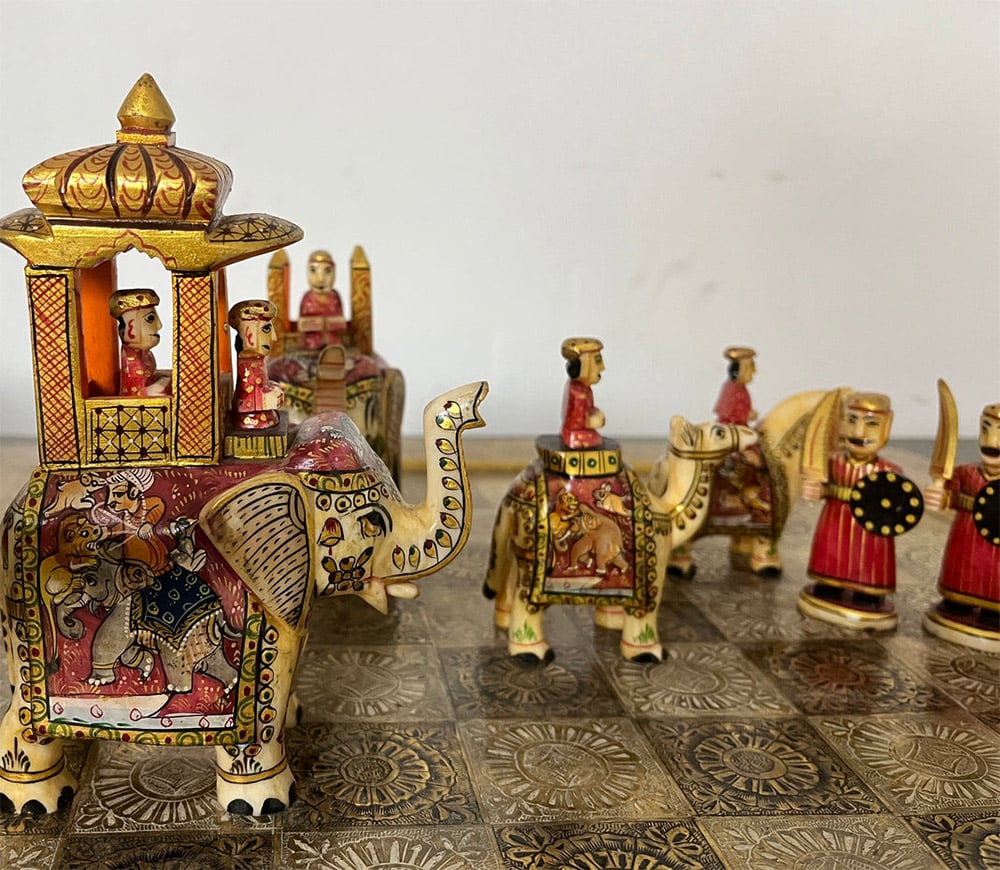
Craft Revival
The Kunj is a living anthology of India’s craft legacies with various homegrown craft brands on display. At MeMeraki, towering scrolls of Madhubani, Pichwai and Pattachitra paintings add a pop of colour to the walls while also reviving endangered art forms in contemporary style. Chinar International has a fine collection of premium, handknotted carpets and rugs showcasing a rich tapestry of Kashmiri craftsmanship. From North Eastern India came Uoo Home offering home decor pieces made by women artisans from Manipur and Assam. Kitchenware brand P-Tal’s glistening brass and copperware utensils revive the Thathera art legacy that was once nurtured under the royal patronage of Maharaja Ranjit Singh of Punjab.
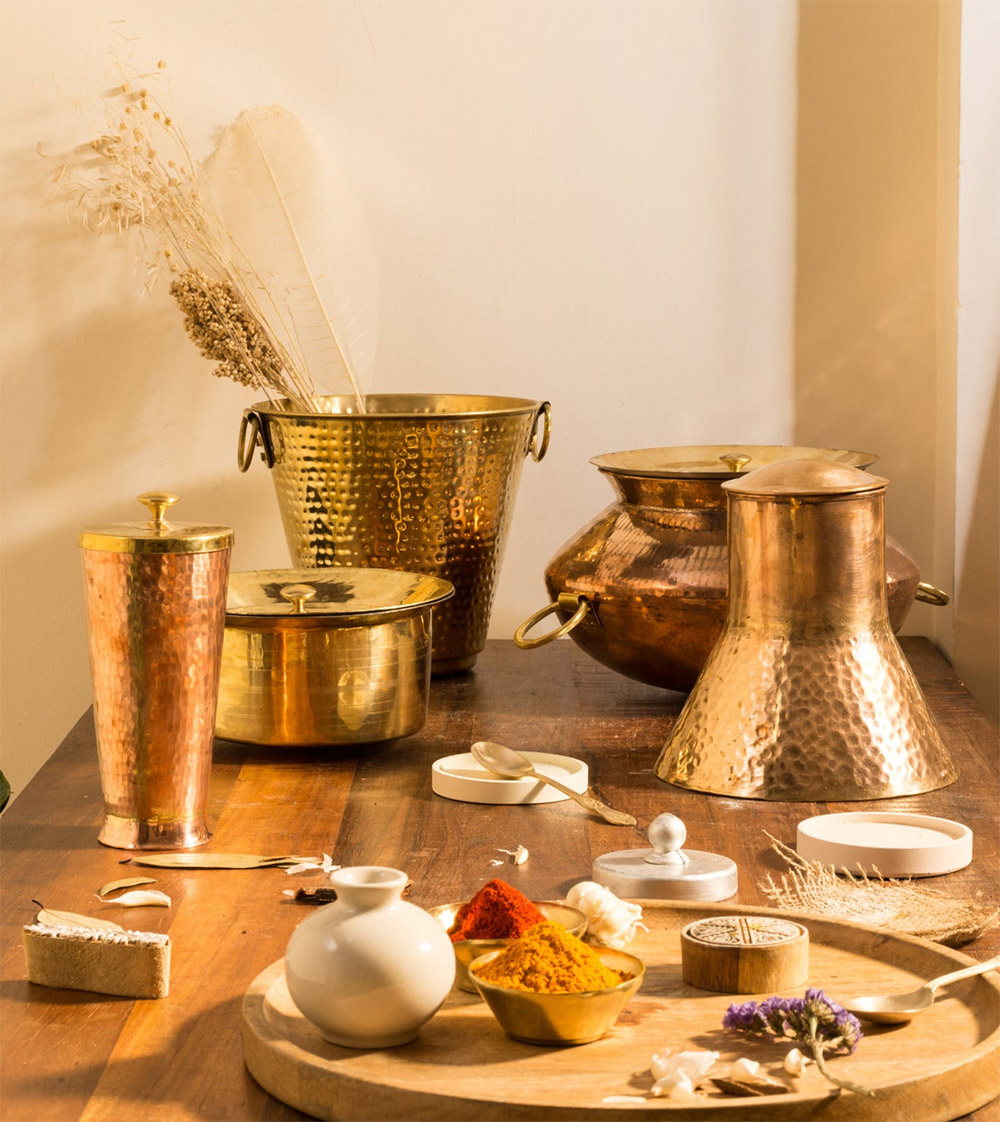
For those who wish to learn about these time-tested crafts, the Kalp Kosh section provides hands-on sessions on craft innovation. Further, the Kala Manch has live demonstrations by master artisans to familiarise people with craft techniques of India.
Sustainability in luxury
Luxury today is not just confined to the most expensive possessions. It also extends to what we cannot afford to lose — our planet. As per a strategy document developed by the Office of The Development Commissioner (Handicrafts), post pandemic there is a strong interest in sustainable and low-waste products. At The Kunj, sustainability was at the heart of creation for many brands. Kiniho from Meghalaya brings a collection of sustainable Eri silk textiles woven by the Ri-Bhoi weaving community from the North Eastern state.
View this post on Instagram
Making eco-friendly clothes, more snazzy for the young, Jaipur-based Iro Iro has collared dresses made from selvedge, patchwork shirts and structured tops championing zero waste circular design. “We have upcycled about 60,000 kilograms of waste so far since the brand’s inception in 2017,” says Bhaavya Goenka, Founder, Iro Iro adding, “Luxury is being redefined in today’s time. It’s about how a designer is tying their own identity with mindful practice. For me, luxury is to look at waste from a lens of creating a fine design that looks good and is good for the environment too.”
